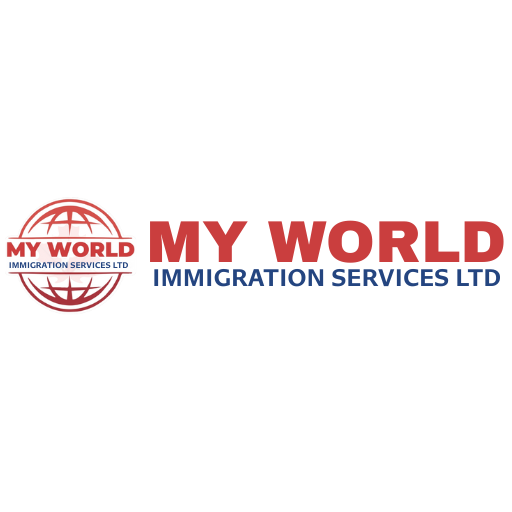
September 28, 2025
Humanitarian & Compassionate (H&C) Applications in Canada: Everything You Need to Know
Not every person in Canada can qualify for permanent residency through traditional immigration programs such as Express Entry, Provincial Nominee Programs (PNPs), or Family Sponsorship. For individuals in unique and vulnerable circumstances, the Humanitarian and Compassionate (H&C) application may be the last pathway to secure status in Canada.
At MyWorld Immigration, we regularly work with individuals who cannot meet the standard immigration program requirements but deserve a chance to stay in Canada because of their hardships and strong ties to the country. This blog gives you a clear, structured overview of the Humanitarian and Compassionate considerations program and what you should know before applying.
What is the Humanitarian and Compassionate (H&C) Program?
The Humanitarian and Compassionate (H&C) immigration program in Canada is designed for people already inside Canada who do not qualify for other immigration streams but who face genuine hardship if forced to leave.
Section 25(1) of the Immigration and Refugee Protection Act (IRPA) gives immigration officers the discretion to grant permanent residency to applicants whose circumstances justify an exemption from regular immigration rules.
👉 In simple terms: If returning to your home country would cause you or your family significant hardship, you may request Canada to allow you to stay permanently under H&C grounds.
Who Can Apply for H&C Immigration?
The H&C pathway is only for people inside Canada. You should consider applying if:
- You cannot qualify for any other immigration program (Express Entry, PNP, Family Sponsorship, etc.).
- You can demonstrate exceptional hardship if you were forced to leave Canada.
- You have strong establishment and ties in Canada.
⚠️ Important: If you are eligible for another immigration pathway (e.g., improving language scores for Express Entry), H&C is not the best option.
Key Factors Considered in an H&C Application
Immigration officers must take a global assessment of your life circumstances. Some of the most important factors include:
1. Best Interests of a Child
If children would be directly affected by your removal, officers will carefully evaluate:
- Age and dependency of the child
- Level of establishment in Canada (school, friends, community)
- Links to the home country and conditions there
- Impact on education, health, and overall well-being
2. Establishment in Canada
Strong establishment in Canada is one of the most important elements. You can demonstrate this through:
- Employment history and stable income
- Volunteering or community involvement
- Language training and cultural integration
- Support letters from employers, schools, community groups, and Canadian friends or neighbors
3. Ties to Canada
Close family ties, friendships, and long-term community connections strengthen your case.
4. Adverse Country Conditions
Hardship factors in your country of origin may include:
- War or political instability
- Widespread violence or discrimination
- Lack of healthcare or essential services
- Severe economic hardship
5. Health Issues
If you or your family members need medical treatment not available or affordable in your home country, this can be a strong factor in your H&C case.
6. Family Violence and Separation
Cases involving risk of family violence or extreme hardship from separation of relatives are also considered.
Documents Needed for H&C Applications
Since H&C is one of the most subjective immigration programs, providing strong evidence is critical. Common documents include:
- Valid passports and Canadian status documents (work/study permits, visitor record)
- Birth, marriage, and divorce certificates
- Police clearance certificates (for all countries lived in since age 18, except Canada)
- Proof of medical exams
- Letters of employment, volunteer work, church involvement, and community participation
- School records and certificates for children
- Support letters from Canadian friends, colleagues, and community members
- Proof of financial management (bank statements, pay stubs, tax returns)
- Photos and personal documents showing life in Canada
- Personal statement letter explaining your hardships and future plans in Canada
How Much Does an H&C Application Cost?
Government processing fees:
- $1,210 – Main applicant
- $1,210 – Spouse or common-law partner (if accompanying)
- $175 – Per dependent child
The H&C Application Process: Step by Step
- Create a PR profile on the IRCC portal.
- Select Humanitarian & Compassionate program.
- Complete the forms accurately, attach supporting documents, and pay the fees.
- Wait for IRCC processing (processing times vary).
- If approved, you will receive your e-COPR (electronic Confirmation of Permanent Residence) and later your PR card.
Writing a Strong Personal Letter to the Officer
Your personal statement is one of the most critical parts of your H&C application. It should:
- Describe your life before Canada and the circumstances that forced you to leave.
- Explain your current situation in Canada, including your work, studies, community contributions, and family life.
- Detail the hardships you and your family would face if forced to leave Canada.
- Show appreciation for Canada and express your commitment to contribute positively to Canadian society.
Why Work with MyWorld Immigration for Your H&C Application?
The Humanitarian and Compassionate program is complex, highly discretionary, and often the last chance for many applicants. Submitting an incomplete or weak application could result in refusal.
At MyWorld Immigration, we:
- Assess your eligibility before you apply.
- Help you build the strongest case possible with supporting documents.
- Guide you in writing a compelling personal statement.
- Ensure your application aligns with IRCC’s H&C considerations.
- Support you throughout the process until a decision is made.
📲 Get in Touch Today
- WhatsApp: +1-672-399-0000
- Website: www.myworldimmigration.com
- Email: info@myworldimmigration.com
- Instagram: @myworldimmigration
